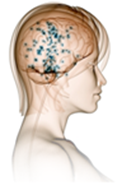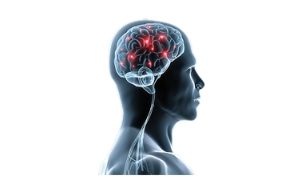Time is Crucial in Stroke Recovery
Stroke Is the First Cause of Acquired Disability in the World
A stroke, brain attack, or a Cerebrovascular Accident (CVA), is the sudden death of brain cells caused by a lack of supply in oxygen to the brain.
A Stroke Changes Your Life. For the millions every year who suffer from a stroke, finding a way to achieve a faster and fuller recovery is paramount to getting back to living a full and independent life.
Read below to learn more about stroke and what it takes to recover.


There Are Two Main Types of Stroke
Ischemic strokes or cerebral infarcts (80% of strokes) result from a blockage or a reduction of blood flow in an artery that irrigates the brain. They are caused either by a blood clot (thrombus) which blocks the blood vessel or by the buildup of plaque (often due to cholesterol) within the arteries which narrows vessels resulting in a loss of blood flow.
Haemorrhagic strokes are due to the rupture of an artery within the brain triggering an intracerebral haemorrhage (15% of strokes) or to the rupture of an aneurysm (arteriovenous malformation) entailing subarachnoid haemorrhage (5% of strokes).
What Are the Consequences of a Stroke?
Resulting disabilities will vary depending on stroke location and severity.
After a stroke, brain cells die in the affected areas resulting to damaged or even lose neurons. Patients will often suffer physical disabilities such as partial loss of motricity or hemiplegia, sensory loss, language disorders, aphasia, visual disorders, and even memory loss.
Neurological functions are essential in daily activities.
Improving the neurological, motor and cognitive functions will help improve quality of life.


What Are Neurological Functions?
Neurological functions correspond to motor and cognitive functions mediated by the brain and nerves.
These functions are essential for daily activities such as moving, thinking, speaking and interacting socially.
Depending on the conditions of nerves and brain, rehabilitation is essential to regain and improve abilities.
Is There Anything to Increase Recovery?
3 ways to improve stroke recovery is to trigger the brain to start any of the below natural self-repair process that will stimulate the following 3 key processes:
- Neuroplasticity
- Neurogenesis
- Angiogenesis
These properties give the possibility to repair the damaged areas to regain cognitive and functional capabilities.
Level of recovery will vary from patient to patient.


The Level of Recovery Will Vary From Patient to Patient
During the recovery from the stroke, you or your loved one will relearn and recover the skills to be as independent as possible.
Given that the recovery potential will decrease over time, the sooner the correct rehabilitation program starts, the greater the possibility of recovering the lost functions.
Starting rapidly a rehabilitation program is key to recovery.
